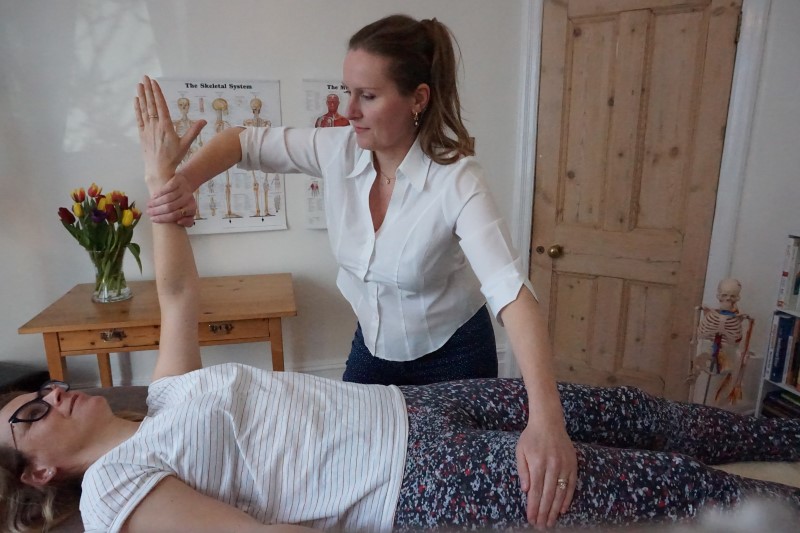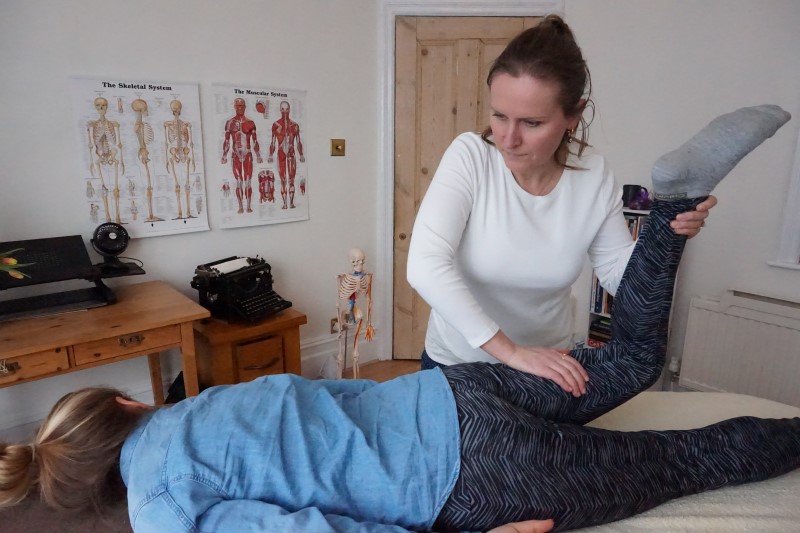Kinesiology
Systematic Kinesiology uses simple muscle testing procedures to read the energetic bio-feedback from the body to find where health issues stem from, where imbalances and energy deficits are, and what particular stresses are affecting you.
Muscle testing, combined with other Kinesiology techniques, enables the practitioner to find out which system is out of balance and apply the right corrections.
Apart from various techniques and methods used during the session, a practitioner will match the correct nutritional supplements and Bach Remedies to give the body a boost and to speed up the healing process; a client also received a ‘personal action plan’ to support the changes which includes small adjustments to the diet based on food testing (reducing or eliminating foods that weaken the body and introducing foods that will strengthen it).
*A muscle testing is a technique used to assess the quality of the muscle response and to detect the source of an imbalance and it is not a test of the muscle strength as used in physiotherapy.
MCPE concept and Holistic Approach
Systematic Kinesiology is a truly holistic system as it includes all realms of the human being: Mental (Emotional/Spiritual), Chemical, Physical and Energetical (known as MCPE) and offers one of the best methods of assessing and correcting imbalances in all areas.
The MCPE concept was one of the most important discoveries made by Dr Goodheart, the father of Applied Kinesiology: he discovered that there is a connection between muscles, organs and the acupuncture meridian system and that the body is all one interacting unit, whole with many different parts, systems and functions. For someone to be completely healthy and balanced, all systems need to be functioning well.
Kinesiologist looks at person’s health from four main viewpoints, each of which interacts with others.
These four aspects are:
Mental — our mind: thoughts, feelings, stress level, our traumas, and emotions;
Chemical — the food we eat, air we breathe, water we drink, medication & drugs we take, food allergies, preservatives;
Physical — the structure, muscles, bones, tendons, posture, exercise, sleep & rest;
Energy — our energy levels, meridians, Chi/ Prana, acupuncture, hydration.

Each aspect can affect the other and we need to restore the balance between them to maintain wellbeing and good health.
A brief history of Systematic Kinesiology (SK)
Basics of Applied Kinesiology (AK) were brought to United Kingdom by Brian H. Butler. Amazed by the technique which helped his daughter recover from a coeliac attack in just 5minutes, he went to America where he trained in Kinesiology and brought this wonderful knowledge and techniques with the founder’s permission for it to be known in UK as Systematic Kinesiology © (SK); it was named in this way since we are able to look at the body in a systematic and thorough way and is now one of the fastest growing fields in natural holistic health as is simple and effective.
In 1980 The Academy of Systematic Kinesiology (TASK) was the first to pioneer Applied Kinesiology training in Britain and Europe, and is the leading school for Systematic Kinesiology training at all levels. TASK has been teaching for well over 3 decades and offers Foundation, Practitioner and Diploma courses in Systematic Kinesiology to become a qualified practitioner.
TASK’s reputation for training excellence is second to none and their experienced tutors combine unique knowledge and expertise at your service.
To find out more about Kinesiology, its benefits and TASK training please visit: kinesiology.co.uk/category/blog/

What Systematic Kinesiology can help with?
- Stress and stress related issues
- Anxiety
- Low mood
- Fatigue and tiredness
- Low energy
- Lack of stamina
- Weakened immune system
- Food intolerances
- Correct diet
- Digestion problems
- IBS
- Constipation
- Bloating
- Candida overgrowth
- Parasites
- Bowel problems
- Hormonal related issues
- Endocrine related issues
- Menstrual problems
- Re-occurring pains
- Chronic pain
- Chronic Fatigue Syndrome
- Weight loss
- Maintaining the healthy weight
- Emotional upsets
- Back pain
- Shoulder pain
- Migraines and headache
- Jaw & face tension
- TMJ (Temporomandibular Joint)
- RSI (Repetitive Strain Injury)
- Wrist pain
- Skin problems
- Choosing correct nutritional supplements…and many more

